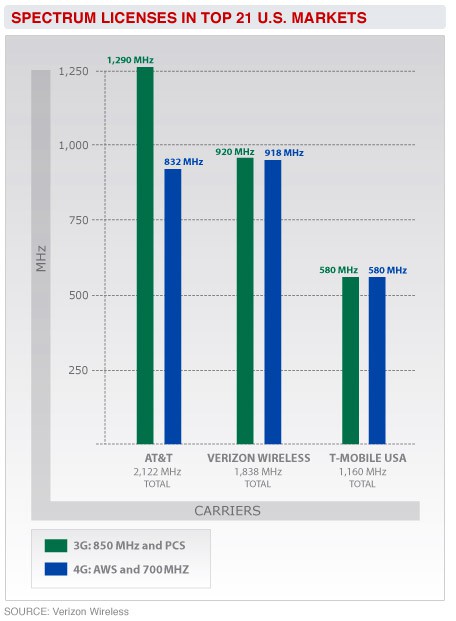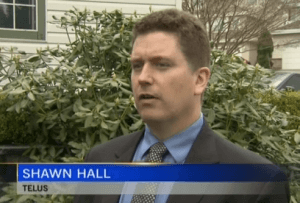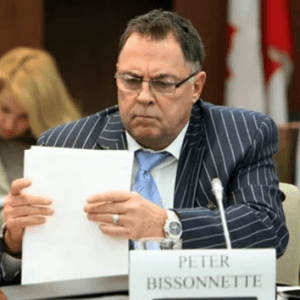One of the most vociferous critics of the publicly-owned cable system serving the communities of Mooresville, Cornelius and Davidson, N.C. has been exposed as an employee of Time Warner Cable.
MI-Connection, the community-owned cable system, has been subjected to withering criticism since town leaders purchased it from bankrupt Adelphia Cable in 2007. The efforts to rebuild the system to current standards has proved time-consuming and expensive, and ongoing expenses will require an investment of at least $17 million over the next three years to keep the cable system up and running. Despite the fact Time Warner Cable has run into larger, more expensive headaches rebuilding similar rundown Adelphia systems they purchased in Ft. Worth, Texas and Los Angeles, critics of community cable have pounced on the costly rebuild to attack public involvement in private enterprise and suggest city officials have not competently run the operation.
Some of the loudest criticism has come in the comment sections of local newspapers and media sites. Just as Fibrant has faced similar attacks in the comment section of the Salisbury Post, critics of MI-Connection have piled on in newspapers like the Davidson News and Hunterville’s Herald Weekly. One of the loudest critics of all, Andy Stevens, even started a blog devoted to attacking what he calls “Government Cable.”
David Boraks, editor of the Davidson News, has reported extensively on MI-Connection, and he reads the comments that follow his articles published online, including those written by Stevens.
In a story written today by Boraks, the Davidson News revealed a fact that consumers, the media, and local officials deserved to know — Stevens works for Time Warner Cable. That revelation comes despite repeated earlier denials from Stevens when asked by reporters and local officials if he worked for the cable company.
How did the newspaper find out about Mr. Stevens’ day job?
MI-Connection board chair John Venzon has gotten fed up reading unrelenting, and often fact-free attacks on the publicly owned cable system he oversees. Venzon told the Herald Weekly he used to ignore the often anonymous critics of the local cable system, but he’s changing tactics. Venzon and some other MI-Connection supporters have jumped into the online debate, correcting false information and taking on some of the cable system’s loudest critics, including Stevens.
As part of that effort, Venzon decided to publicly disclose a recent encounter with Stevens at a local shopping center. Venzon was especially interested to find Stevens wearing a Time Warner Cable uniform, driving a Time Warner Cable truck.
Venzon went public on the Davidson News website Friday:
I would like to point out that today we confirmed that Andy Stevens, a frequent attendee at our board meetings and vocal community critic works for Time Warner Cable. He was greeted by one of our employees while in a TWC uniform and driving one of their logo-ed vehicles. He has been active in using our publicly available information to turn our potential customers against us and to stir up fear, uncertainty and doubt about MI-Connection while hiding his motives. He does not live in our town or service area, so he does not ‘have a dog in the fight’ unless you consider who signs his paycheck. Could I attend competitors’ regular board meetings to see what they are doing?
To make matters worse, he has used the Freedom of Information Act to gain access to every communication between the towns, the board and management. So Time Warner does in fact sit in our meetings … and we are required to provide the meeting notes.
In corporate America, this would constitute espionage. In our situation, it is free and legal. I find it deplorable. I hope you agree.
I believe we should be required to report information just as publicly traded companies do and would adhere to all such requirement. That system promotes transparency to shareholders on a quarterly basis. In addition, we would continue to attend town board meetings and community roundtables to disclose information to citizens.
In another setting, I would be happy to debate the merits of public ownership of a utility that promotes the well being of its citizens and businesses within their community. However, we are in the midst of executing a decision that was made several years ago and are responsible to grow the business.
I do not mind a fair fight, and we must win based on the value of our products and services. However, don’t unfairly give advantage to our competitors and put our citizens at greater risk.
Boraks has gotten an admission from Stevens he does, in fact, work for Time Warner Cable, a pertinent detail omitted from Stevens’ anti-MI-Connection blog. Before deleting about a dozen articles attacking the community cable system, Stevens even noted on the home page of his website, “As I have a full time job, this effort will be accomplished during my free time (evenings and weekends),” without bothering to disclose what that job was. His “About” section didn’t make mention of his employer either.
Now that Time Warner Cable, a regular critic of community-owned broadband, has been put in the embarrassing position of having an employee indirectly do its dirty work, a company spokesman was reduced to telling Boraks they cannot control what their employees do.
But apparently behind closed doors, all is not sweetness and light between Stevens and his employer. Stevens’ highly active blog suddenly was deprived of all its content after revelations about his employer made the newspaper. Bing’s cache of Stevens’ site (which Stop the Cap! has captured) shows he had plenty to say about the cable system — none of it good. That all changed today.
Boraks opined in his piece in the News that Stevens ongoing denials of involvement with Time Warner Cable and his lack of disclosure left him concerned.
Indeed, Stevens’ efforts to hide his employer’s identity and his subsequent decision to bring his blog down after the cat was let out of the bag suggests there is nothing for Stevens or Time Warner Cable to be proud of in their relentless, often sneaky efforts to bring community-owned competition to its knees. When it comes to protecting duopoly profits of local cable and phone companies in North Carolina, it’s total war on all fronts.


 Subscribe
Subscribe













